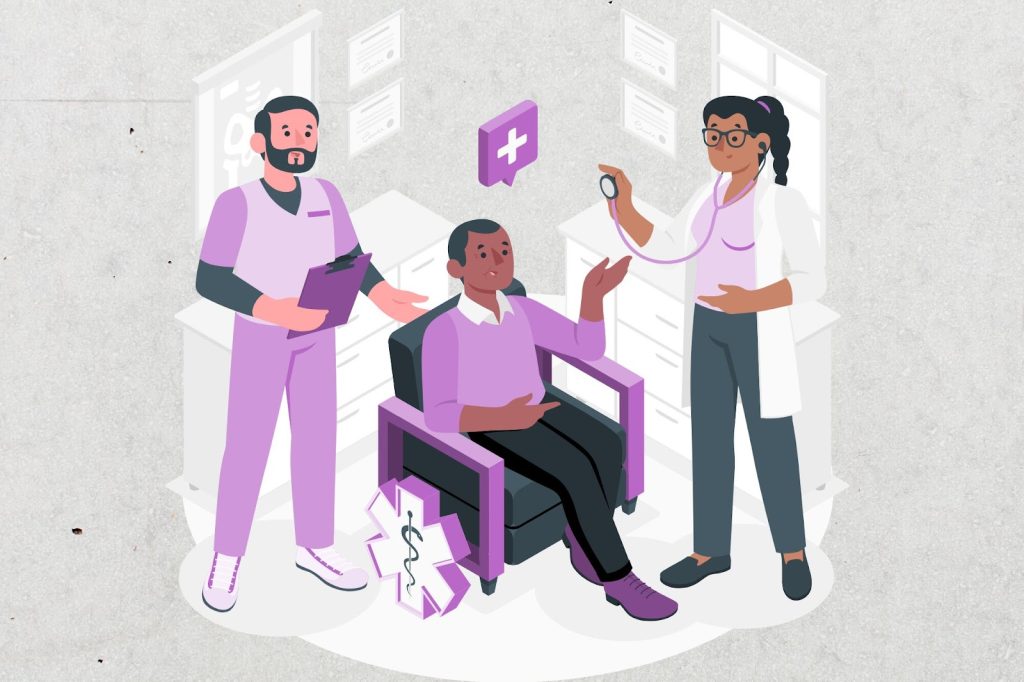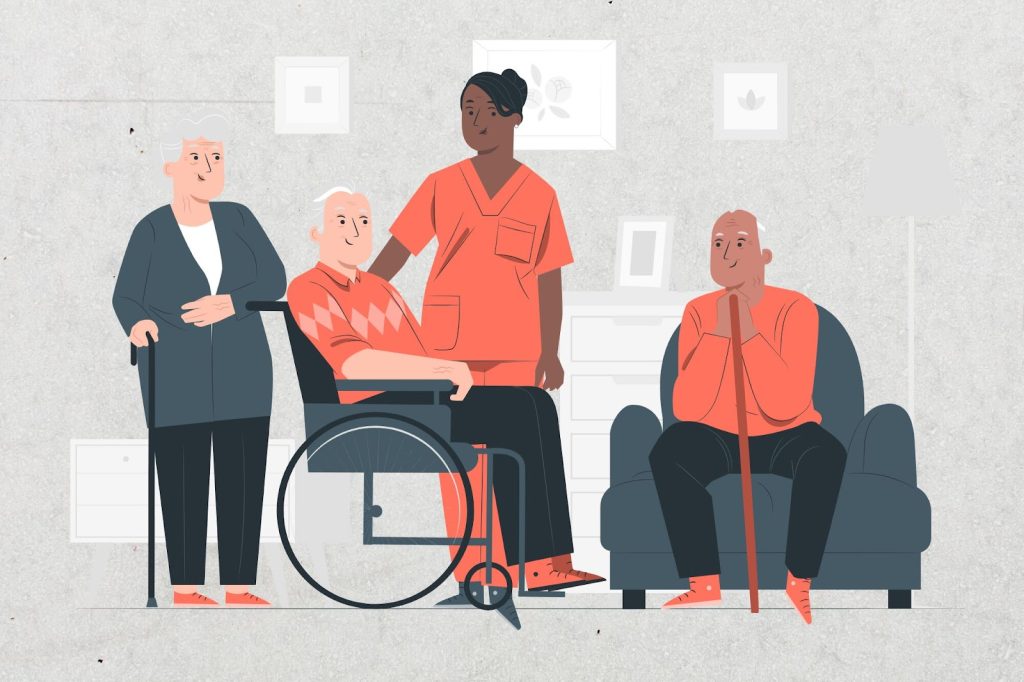Quick Overview
Continuing Professional Development (CPD) is the ongoing process of developing knowledge, skills, and competence for health and social care professionals. It ensures high-quality care, compliance with regulations, and career growth.
This blog will cover:
✅ What CPD is and why it matters for health and social care professionals.
✅ Types of CPD activities, including formal training, online courses, mentoring, and self-directed learning.
✅ How CPD improves patient care, keeps professionals up to date, and supports ethical, inclusive practice.
✅ The role of CPD in organisational compliance, staff engagement, and promoting a culture of continuous improvement.
✅ Strategies for implementing effective CPD, including personalised plans, institutional support, and evaluating impact.
CPD in health and social care can vary greatly depending on the needs of the practitioner. Continuing Professional Development (CPD) is the process of developing professional skills and knowledge to maintain and enhance competence during one’s professional working life. CPD is important in ensuring that health and social care professionals can deliver consistent and safe care to patients and service users as the needs of a population change and evolve. This blog will discuss what CPD is in the health and social care sectors, the benefits it has for professionals, and how it plays a key role in providing quality care.
Understanding CPD in Health and Social Care
What is CPD?
Continuing Professional Development (CPD) is a structured process that provides a framework for ongoing personal and professional development for health and social care professionals. CPD enables professionals to develop and maintain their skills, knowledge and competence throughout their careers. In particular, it supports a continual learning process that enables professionals to remain abreast of developments in the sector and maintain standards in their practice. In health and social care, where treatments, regulatory frameworks, and the demands on services are in a constant state of change, professionals who engage with CPD are demonstrating their commitment to providing the highest possible standards of care and complying with their regulatory duties.
This means that CPD in health and social care is not about attending courses or gaining certificates but about understanding how to reflect on practice, identify what can be improved, and seek ways to develop further professionally in relation to your practice, whether learning new techniques or updating skills, or deepening knowledge of a specialist area of care.
Types of CPD Activities
, your workplace often offers formal training or workshop sessions to healthcare organisations, education providers or regulatory bodies. These cover a variety of topics, such as clinical procedures or policy changes, and are more structured ways of learning and developing that are directly relevant to your professional practice.
Furthermore, mentoring, learning groups and so on, where fellow professionals can share what they have learnt with each other, are also forms of peer learning. CPD courses that are offered online provide flexibility and convenience, helping busy professionals fit the demands of CPD around their busy schedules. Going to conferences, reading journal articles, and participating in other forms of self-directed study are also CPD activities that help professionals keep abreast of developments in their field. Personalisation in CPD allows professionals to focus on the areas that matter most and are most relevant to their career paths and their patients.

Benefits of CPD for Health and Social Care Professionals
Ensuring Up-to-Date Knowledge
Another of the key advantages of CPD is that it keeps health and social care professionals up to date with new clinical practices, regulations, and ways of working. For instance, with medical technologies and treatment methods changing so rapidly, professionals need to possess the most up-to-date information. Otherwise, best practices may not be followed, and the care provided to patients and service users may need to be more safe and effective.
Keeping up with legislation is just as vital. A set of professional standards binds clinicians and social care workers, and CPD helps them avoid falling foul of the law and adhere to its changes. Knowledge of clinical and legal changes prevents pitfalls in practice and helps practitioners remain within their regulatory bodies.
Improving Patient and Service User Care
CPD directly affects the quality of care that health and social care professionals provide to the public. CPD directly enhances the clinical skills of health and social care professionals and builds their knowledge of new technologies. This means that health and social care professionals can deliver care that is not only more effective but also more patient-centred. CPD encourages professionals to be innovative in the way they deliver care, whether this is via new cutting-edge technologies such as advanced medical devices or even in more fundamental but no less challenging ways, such as by adopting new ways of delivering care that are centred around the individual – that is, are person-centred.
For instance, CPD may help a care worker improve their practices in the management of chronic conditions or allow a nurse to refine their diagnostic skills, which leads to better patient outcomes since the professional can care for the individual in the best possible way, informed by the latest research and best practices in their field. CPD thus improves patient experiences and long-term health results by helping professionals achieve the best possible care.
Career Development and Progression
In addition to helping to improve everyday practice, CPD is also part of the professional development and career progression of all health and social care professionals at all levels. This can involve progressing towards specialising in a particular area of care, for example, mental health, geriatrics or paediatrics.
CPD offers this by supporting professionals to be ready to step up to leadership positions within their organisation through management training, leadership workshops or more advanced clinical courses. Career progression is enriched through CPD for the professional, but also for the health and social care services they provide as a leader by increasing knowledge and enhancing the workforce into a skilled and knowledgeable group of leaders. So, for any professional looking to progress in their career with the aim of providing excellent care, CPD is a must.

The Role of CPD in Maintaining High-Quality Care
Adapting to Changing Care Needs
Health and social care is a fast-changing environment, and the needs of the patients and service users will always be developing. One way in which professionals can adapt to these changes is through undertaking CPD. For example, people working in mental health, or with the care of older populations or those living with chronic illnesses, are well aware that the demands on them are evolving, and CPD offers the opportunity to keep abreast of the latest approaches to managing those conditions and providing the best care possible for patients and service users. As the population ages and conditions such as dementia and diabetes become more prevalent, it will be crucial that those providing care are up to date with the latest evidence.
Another example is that CPD enables clinicians to keep up with the rapid progress in mental health care. Growing research in mental health care brings forth new treatments, therapies, and ways of understanding mental health support that emerge constantly, and CPD helps ensure that clinicians are able to incorporate these into their practice. This ensures that care is dynamic, evolving, and relevant to the specific needs of a diverse range of patient populations.
Promoting Ethical and Inclusive Practice
CPD is important in promoting ethical and inclusive practice in health and social care. Health professionals must work within strict ethical frameworks so that they can guarantee the well-being, safety and rights of their patients and service users. CPD enables professionals to keep up to date with these ethical standards and regulations, in turn ensuring that they can comply with new policies and best practices. This kind of work is particularly important for promoting inclusive and equal healthcare settings, where services can be delivered in a way that is sensitive to issues of gender, culture and socioeconomic status.
Through CPD, practitioners are prodded into reflective practice – they are encouraged to think about how their practice affects patients. Practitioners can then update their knowledge, avoid ‘ethical traps’ and improve practice to become more fair, respectful and inclusive. Practitioners’ commitment to providing the right kind of care creates trust between carers and cared-for and also helps to create a sense of social justice.

The Importance of CPD for Health and Social Care Organizations
Meeting Regulatory Requirements
CPD is important for health and social care organisations because they need to demonstrate to regulators like the CQC and the HCPC that they are fulfilling their professional obligations to staff (in terms of CPD) and to patients (in terms of delivering what can be achieved through ongoing learning). Failure to sanction fin for an organisation because of not to mention patient safety and the risk of litigation.
CPD, therefore, helps to guarantee that professionals are kept up to date with these standards, lessening the likelihood of legal or regulatory violations. It enhances the organisation’s ability to showcase its commitment to quality and safety, which is vital to maintaining a trusting relationship with patients, families and the broader community.
Supporting a Culture of Continuous Improvement
However, beyond compliance, CPD promotes a culture of improvement in health and social care organisations. In valuing learning, developing and reflecting, organisations can promote an environment of experimentation, cross-pollination and learning. Organisations that prioritise CPD are likely to encourage professionals to work together on new concepts and ideas, to share previous experiences, and to implement changes that lead to better patient and service user outcomes.
But it also fosters staff engagement and satisfaction. When professionals are encouraged to learn, they feel more motivated and more committed to their work. This leads to better retention of staff in their jobs but also tends to ensure that the care delivered is better, too, as motivated people are more likely to deliver compassionate and effective care to patients.
How to Implement CPD Effectively
Personalised Learning and Development Plans
Finally, CPD plans that are personalised to the individual, reflecting their career plans, interests and professional roles, can ensure that professionals can engage in CPD activities that are meaningful and directly relevant to them at a particular point in their careers, making the CPD experience more effective.
If someone is interested in becoming a specialist in a particular area of care or building their leadership capacity, then a bespoke programme can provide targeted CPD. The bespoke programme ensures that CPD activities are in line not only with your career development but that of your organisation, as well as the populations you serve.

Institutional Support for CPD
However, for CPD to be truly effective, it needs to be supported at an institutional level. Healthcare and social care organisations should offer access to training opportunities and provide funding for professional development, as well as allow staff time to engage in CPD without compromising on their usual responsibilities. Institutional support for CPD shows an investment in staff development and helps build a skilled and engaged workforce.
Not only do charities benefit from the continued commitment of staff through an investment in CPD, but they also enhance the loyalty of staff to their organisation and improve their job satisfaction. This is important because when professionals feel that their development within the organisation is valued and recognised, they are more likely to remain and not seek to move on. This not only improves staff retention but also ensures the stability of patient care.
Evaluating CPD Impact
And for both individuals and organisations, it is vitally important that we have a way to capture the impact of CPD. One approach to evaluating the impact of CPD is by providing and collecting feedback from professionals following a training or development activity. Questions can be asked to determine the relevance of the CPD, if the professional was able to use the skills or knowledge acquired, and whether the CPD was likely to influence their practice. Another way to assess the impact of CPD is to track improvements in the delivery of care, for example, in terms of increased efficiency, patient satisfaction or clinical outcomes.
Furthermore, patient or service user outcome data can be another important indicator of the wider impact of CPD on the quality of care. Improvements in patient health, engagement, and satisfaction could be strong indicators that CPD is making a valuable contribution. In this way, an approach to CPD that involves continuous evaluation also helps to keep this process dynamic and effective.
Conclusion
Continuous Professional Development (CPD) is very important to health and social care professionals in order to keep up to date with developments in the industry, enhance the quality of care, and further their careers. Professionals must continue to learn and adapt to meet the changing care needs and to ensure that they maintain their ethical and patient-centred approach. Professionals and their organisations should place importance on CPD to maintain and improve the care they are giving to individuals.

